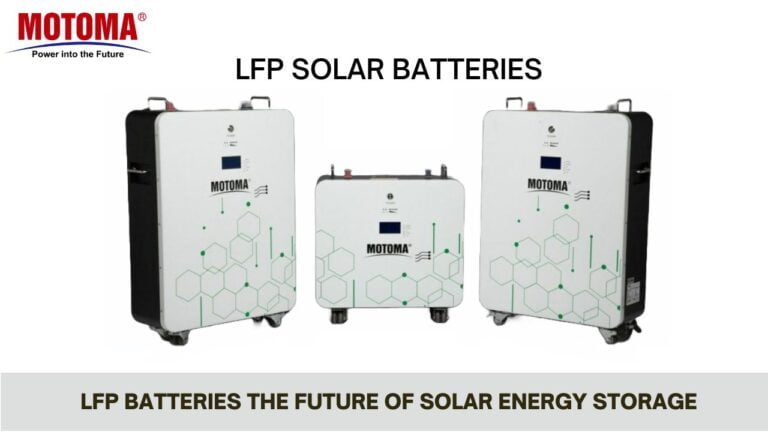As the popularity of solar energy systems with battery storage continues to grow, there are several myths and misconceptions surrounding the use of (Lithium Iron Phosphate) LFP Battery for energy storage. In this article, we will explore some of the most common LFP battery storage myths and separate fact from fiction.
Myth #1: LFP Batteries are Unsafe
One of the most common myths surrounding LFP batteries is that they are unsafe and prone to catching fire or exploding. While it is true that some types of lithium-ion batteries have been known to catch fire or explode, LFP batteries are not one of them. Lithium Iron Phosphate batteries are considered one of the safest types of lithium-ion batteries because they have a stable chemistry that is less prone to thermal runaway. In fact, LFP batteries are often used in electric vehicles and other applications where safety is a top priority.
Myth #2: LFP Batteries Have a Short Lifespan
Another myth about LFP batteries is that they have a short lifespan and need to be replaced frequently. However, the opposite is true. Lithium Iron Phosphate batteries have a longer lifespan than other types of lithium-ion batteries and can last up to 10 years or more with proper maintenance. Additionally, LFP batteries have a longer cycle life, which means they can be charged and discharged more times before their capacity starts to degrade.
Myth #3: Lithium Iron Phosphate Batteries are Expensive
While it is true that LFP batteries are more expensive than traditional lead-acid batteries, they are becoming more affordable as the technology advances and demand grows. Additionally, Lithium Iron Phosphate batteries are more cost-effective in the long run because they last longer and require less maintenance than lead-acid batteries. The initial investment may be higher, but the lifetime cost is often lower.
Myth #4: LFP Batteries Cannot Be Recycled
Another myth about LFP batteries is that they cannot be recycled. However, LFP batteries are 100% recyclable and can be repurposed into new batteries or other products. In fact, the recycling rate for Lithium Iron Phosphate batteries is higher than other types of lithium-ion batteries because they are less prone to thermal runaway and can be safely dismantled and recycled.
Myth #5: LFP Batteries are Inefficient in Cold Temperatures
It is true that lithium-ion batteries, including LFP batteries, can experience reduced efficiency in cold temperatures. However, this is true of all battery types, not just Lithium Iron Phosphate batteries. In fact, Lithium Iron Phosphate batteries are more efficient in cold temperatures than lead-acid batteries because they have a wider operating temperature range. Additionally, LFP batteries can be equipped with heating systems to maintain optimal operating temperatures in cold climates.
Myth #6: LFP Batterie Cannot Be Used in Off-Grid Systems
Another myth about LFP Battery is that they cannot be used in off-grid systems. However, LFP batteries are actually an excellent choice for off-grid systems because they have a high energy density and can store a large amount of energy in a relatively small space. Additionally, Lithium Iron Phosphate batteries have a high depth of discharge, which means they can be discharged to a greater extent without damaging the battery.
Myth #7: LFP Batteries Cannot Be Used in High-Temperature Environments
It is true that high temperatures can reduce the lifespan of LFP batteries. However, this is true of all battery types, not just Lithium Iron Phosphate batteries. To mitigate the effects of high temperatures, Lithium Iron Phosphate batteries can be equipped with cooling systems to maintain optimal operating temperatures. Additionally, Lithium Iron Phosphate batteries are less prone to thermal runaway than other types of lithium-ion batteries, making them safer to use in high-temperature environments.
Conclusion
Lithium Iron Phosphate (LFP) batteries are a safe, reliable, and cost-effective option for energy storage in solar energy systems. While there are several myths and misconceptions surrounding LFP batteries, the truth is that they are a viable option for energy storage in a wide range of applications. Lithium Iron Phosphate batteries are safer, longer-lasting, and more cost-effective in the long run than lead-acid batteries.
When considering an LFP battery storage system, it is important to choose a reputable manufacturer and work with a qualified installer to ensure proper installation and maintenance. Additionally, it is important to choose the right size and capacity of battery to meet your energy needs and to consider factors such as operating temperatures and charging and discharging cycles.
In conclusion, it is important to separate fact from fiction when it comes to LFP battery storage. By understanding the truth about Lithium Iron Phosphate batteries and dispelling common myths and misconceptions, consumers can make informed decisions about their energy storage needs and choose the right battery for their solar energy system.
